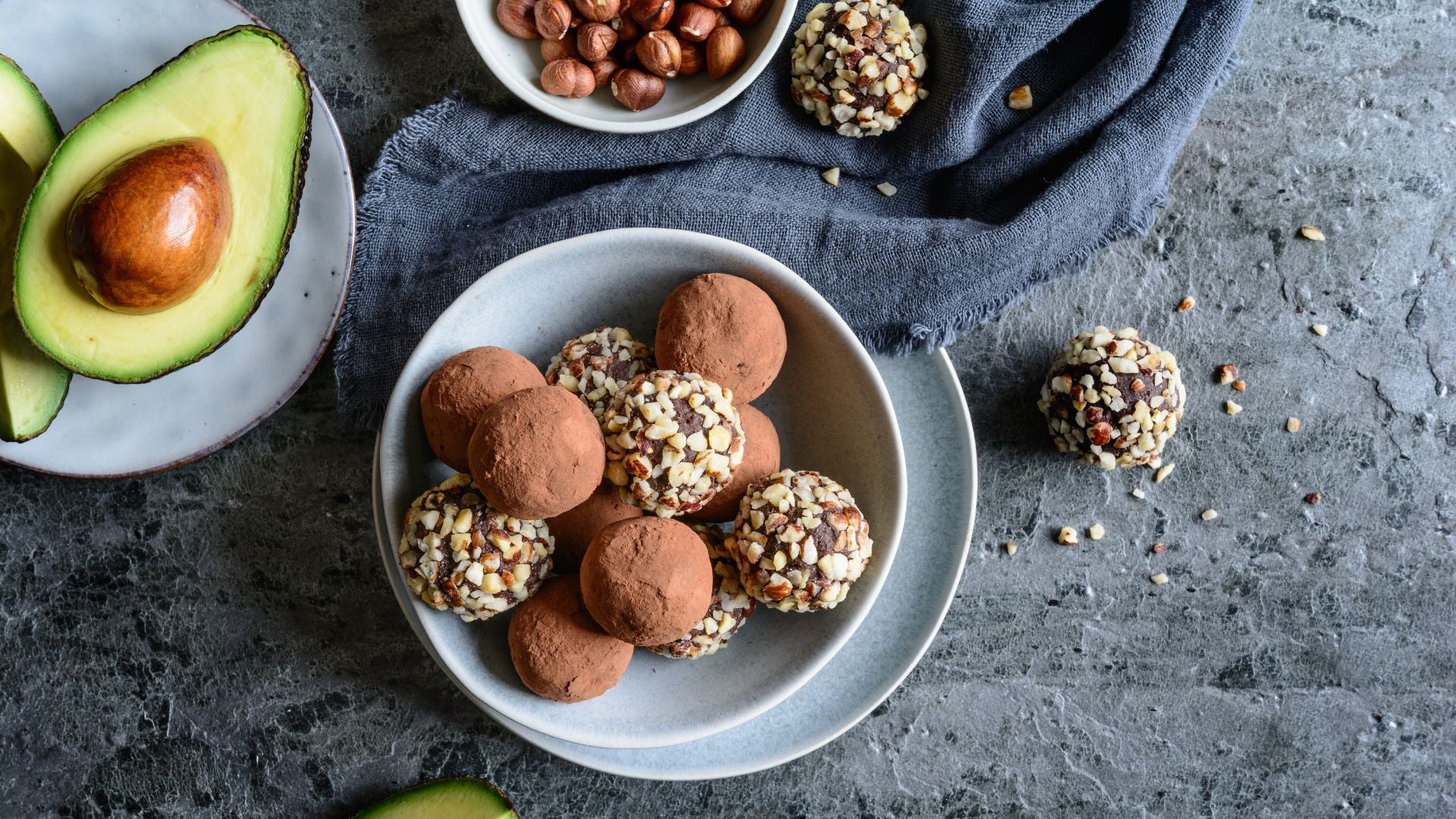Do you cringe at the word “fat”? Are you scared eating high-fat foods will make you gain weight or develop heart disease? Do you search for low-fat options at the grocery store out of habit?
The truth is that there is no reason to fear fat! It’s good for you, and your body needs it. And, plot twist, it doesn’t make you fat.
Many of the ideas we hold about fat are based on faulty nutrition science and intentional marketing from the industrial food and pharmaceutical industries. Let’s break down some of the myths and then talk about what fats to focus on in the diet for optimal health.
Myth #1: Fat makes you fat and gives you a heart attack.
Fat in food doesn’t equal fat in the body, especially when consuming nutritious fats from whole foods. The body makes fat and one of the signals of fat production is dietary sugar.
Most low-fat products remove the fat and replace it with sugar (and often thickeners and other additives to simulate the mouthfeel of fat). During the low-fat craze of the 80s and 90s that continues today in many ways, people’s waistlines have gotten bigger, not smaller.
In addition, the idea that dietary saturated fats and cholesterol singlehandedly promote heart disease has been disproven in the scientific literature. It’s the standard American diet, full of processed, high sugar foods, that harms the metabolism and contributes to heart disease. Not natural foods that humans have been eating for tens of thousands of years.
As far as reducing heart disease risks, there are two types of unnatural, highly processed fat to decrease or avoid:
- Industrial oils
- All trans fats
Myth #2: Fat is unhealthy, and low-fat diets are healthy.
Dietary fat is essential for life. It plays many roles in the body, including:
- Body structure. Every cell membrane is made out of fat. The brain is about 60% fat. We also need fat for the nervous system, hormone production, and skin structure.
- Nutrient absorption. Dietary fat is required for the absorption of fat-soluble vitamins (vitamins A, E, K, and D) and fat-soluble phytonutrients such as beta-carotene.
- Satiety. Eating fat signals your brain that you are full and have had enough. Low-fat foods or meals leave you wanting more.
- Metabolism. Fat is burned as fuel efficiently. Although it sounds counterintuitive, in many causes increasing dietary fat is helpful for weight loss.
The Best Fats To Eat
When choosing fats to cook with at home and include in the diet, here are our favorite tips:
Eat abundant fat from plants:
- Avocados
- Olives
- Coconut
- Seeds
- Nuts
- Peanuts
- Cacao
And in moderate quantities:
- fat from quality animal proteins such as eggs, meat, and whole dairy products
Eat abundant fat from:
- Olive oil
- Avocado oil
- Unrefined coconut oil
- Butter and ghee
Eat moderate fat from:
- Linoleic acid “seed oils” - canola, soy, safflower and sunflower
Stick to whole or minimally processed fats and look for products, like Scott’s Protein Balls, that choose quality ingredients and contain nutritious, satisfying fats. Try shifting the fat in your diet and see what shifts in your health.






